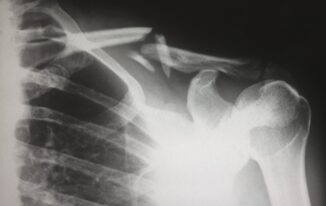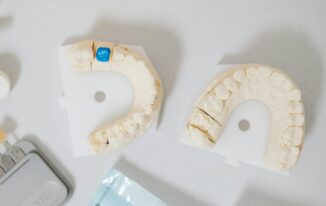Maintaining good hearing health is an essential part of preserving overall quality of life. Hearing allows us to communicate, stay connected, and be alert to the environment around us. However, many of us overlook the importance of caring for our ears, especially in our younger years. With noise pollution and lifestyle habits increasing the risk of hearing loss, proactive steps are crucial to maintaining hearing health at every age. This guide provides practical advice to help you protect your hearing now and in the years to come.

Image source: https://pixabay.com/photos/woman-listen-to-inner-voice-cry-4581024/
Understand the Causes of Hearing Loss
Hearing loss can arise from a variety of causes, including exposure to loud noises, age-related degeneration, genetic predispositions, and even certain medications. Loud noises, whether from concerts, construction sites, or personal audio devices, can damage the sensitive hair cells in the inner ear, leading to permanent hearing loss over time. Age-related hearing loss, known as presbycusis, typically affects individuals over 60 and results from gradual wear and tear on the ear’s sensory cells. Understanding these causes is essential to recognizing how our daily actions can impact our hearing health.
Protect Your Ears from Loud Noises
One of the most effective ways to maintain hearing health is by protecting your ears from loud noises. Prolonged exposure to sounds above 85 decibels, such as traffic noise or lawnmowers, can damage your hearing. When attending concerts, sports events, or noisy work environments, use earplugs or noise-canceling headphones to shield your ears. If you frequently listen to music through earbuds, follow the 60/60 rule: keep the volume at 60% and limit listening to 60 minutes at a time. By making a habit of protecting your ears, you can significantly reduce the risk of noise-induced hearing damage.
Schedule Regular Hearing Checkups
Scheduling regular hearing checkups is essential for maintaining long-term hearing health. Hearing loss often progresses slowly, making it hard to notice until it has become severe. Experts recommend adults get a baseline hearing test by age 50, though frequent noise exposure or family history may require earlier monitoring. Regular checkups help detect any hearing issues early, allowing for prompt action to prevent further deterioration. For those in the area, Toronto’s trusted hearing clinic offers comprehensive assessments and personalized care, helping clients stay on top of their hearing health. Early intervention can make a big difference in preserving hearing quality, making these routine checkups a valuable component of proactive health care that ensures your hearing stays sharp throughout life.
Avoid Ototoxic Medications When Possible
Certain medications, known as ototoxic drugs, can harm your ears and potentially lead to hearing loss or tinnitus (ringing in the ears). Some antibiotics, chemotherapy drugs, and even over-the-counter medications like aspirin (in high doses) are known to have ototoxic effects. If you’re prescribed medication, especially if it’s long-term, consult your doctor about possible side effects on hearing. In some cases, alternative treatments may be available that do not carry the same risks. Being mindful of the medications you use and their potential impact on hearing can help protect your ears in the long run.
Practice Good Ear Hygiene
Proper ear hygiene is another simple but important aspect of hearing health. While it’s common to use cotton swabs to clean ears, this practice can push wax further into the ear canal, potentially causing blockages and damaging the eardrum. Instead, let earwax naturally work its way out, or consult a healthcare professional for safe ear-cleaning methods if buildup occurs. Earwax serves as a natural barrier against bacteria and dirt, so avoid over-cleaning. By practicing good ear hygiene, you can prevent infections and other issues that might impact your hearing.
Manage Chronic Health Conditions
Certain chronic health conditions, such as diabetes, cardiovascular disease, and high blood pressure, can impact your hearing. These conditions can reduce blood flow to the inner ear, damaging the structures responsible for hearing. By managing these conditions through diet, exercise, and regular medical care, you can also help protect your hearing. For instance, maintaining healthy blood pressure and blood sugar levels can reduce the likelihood of developing hearing-related issues. Staying proactive about your overall health is a powerful way to support your hearing and prevent related complications.
Stay Physically Active for Better Hearing
Regular physical activity benefits not only your general health but also your hearing. Exercise promotes healthy blood circulation, which is essential for the inner ear’s function. Activities that elevate your heart rate, such as walking, swimming, or cycling, can enhance blood flow and help maintain the health of your auditory system. Even light activities like yoga, which incorporates breathing exercises and balance, have been found to improve circulation and reduce stress levels, both of which support hearing health. Aim for at least 150 minutes of moderate exercise per week to keep your body and ears in good shape.
Be Aware of Early Signs of Hearing Loss
Finally, being aware of the early signs of hearing loss can encourage you to seek help sooner rather than later. Common signs include difficulty understanding conversations in noisy environments, frequently asking people to repeat themselves, or needing to turn up the volume on electronic devices. Tinnitus, or a persistent ringing in the ears, can also be a sign of damage to the auditory system. If you notice any of these symptoms, it’s important to consult a hearing specialist for an evaluation. Early intervention can often slow the progression of hearing loss and improve overall hearing quality.

Good hearing health is often taken for granted until issues arise, but it’s never too early—or too late—to start protecting your ears. By understanding the causes of hearing loss, protecting yourself from noise, and prioritizing regular checkups, you can help ensure that your hearing remains sharp and healthy throughout your life. Small lifestyle adjustments, such as managing health conditions, practicing ear hygiene, and staying active, can make a big difference. Taking proactive steps today will help you enjoy clear, vibrant hearing for years to come.



